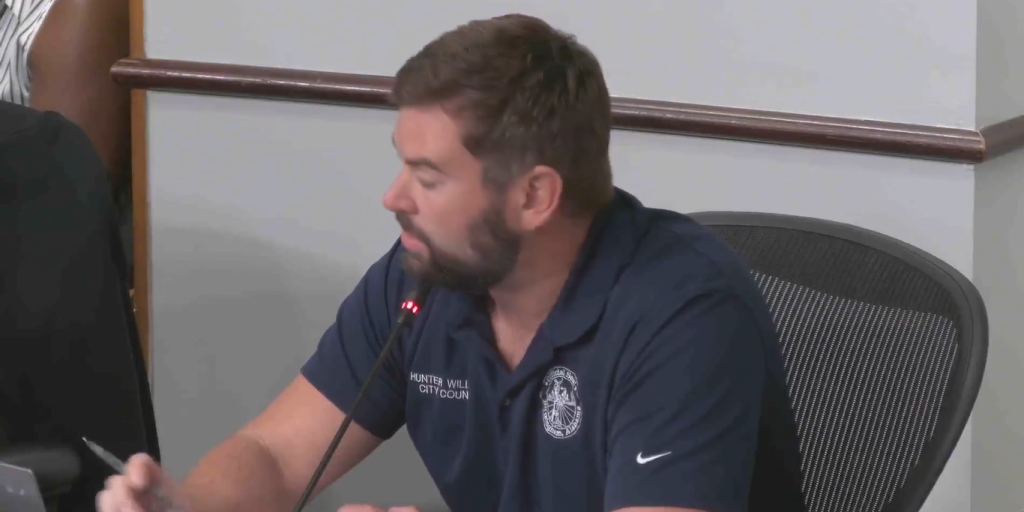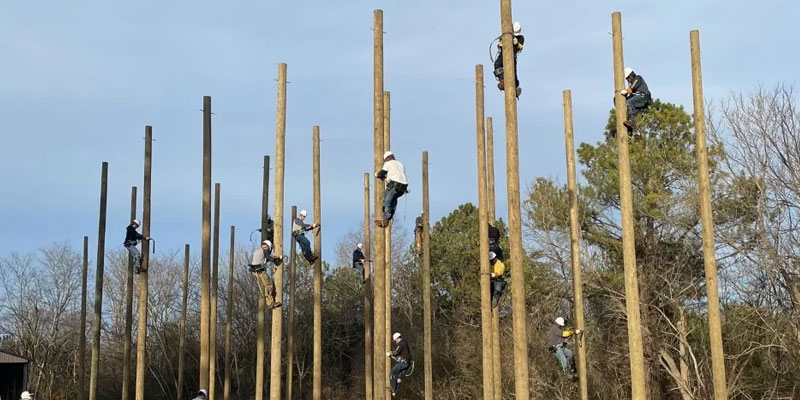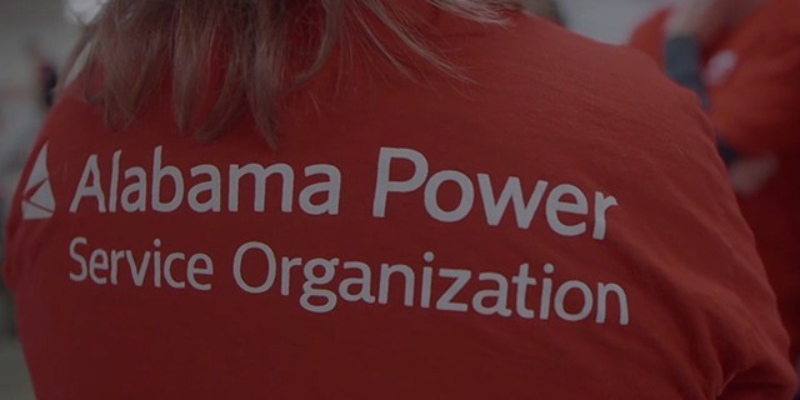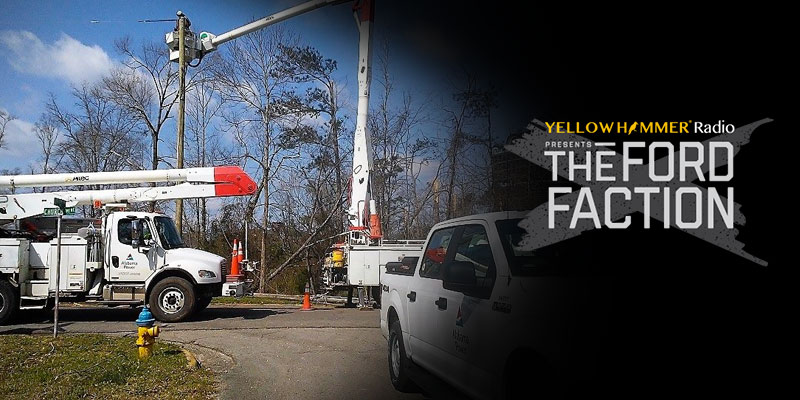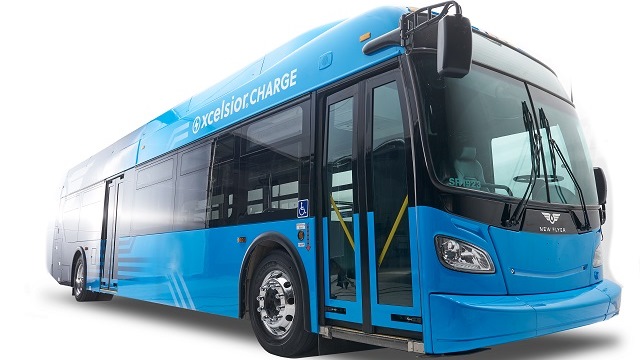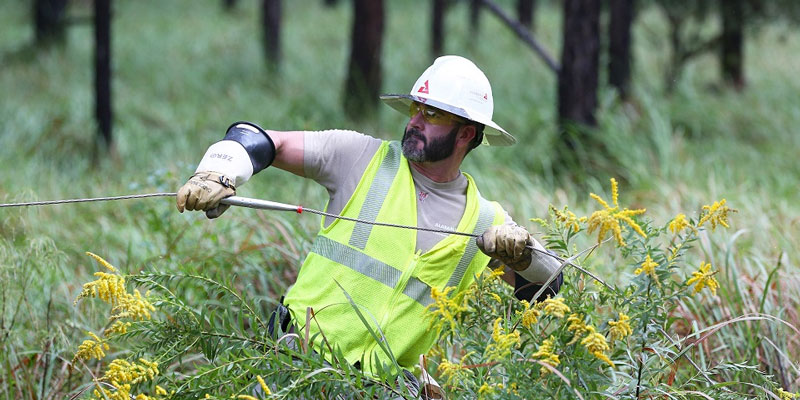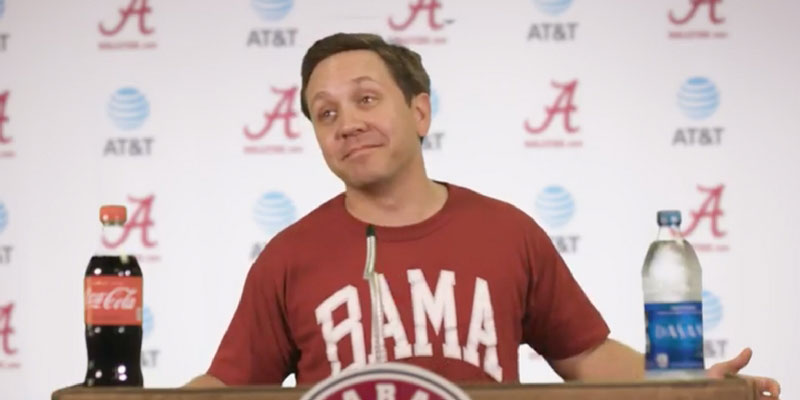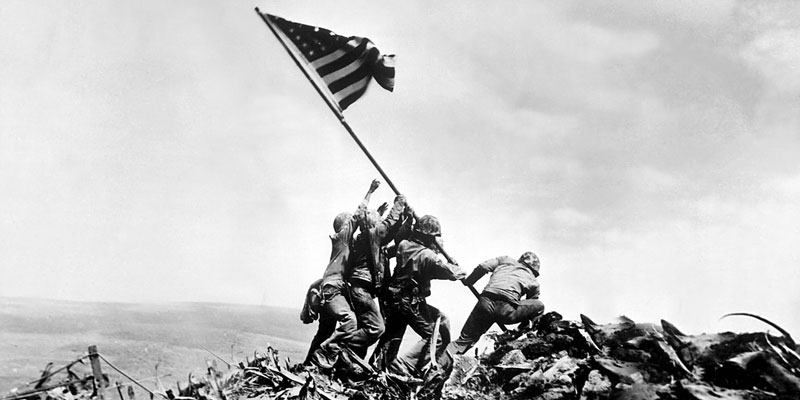
Jasper’s Charles Gilliland had a great seat for one of the most famous scenes in American history. But he didn’t get to see it for long.
The World War II Navy radioman was just below Iwo Jima’s Mount Suribachi on Feb. 23, 1945, when six Marines raised the American flag. A Pulitzer Prize-winning photo of the moment was used to design the Marine Corps War Memorial near Arlington National Cemetery.
“I was sitting on a hill down from them and I glanced up and saw it,” Gilliland recalled. “But I didn’t get to see it but just for a few seconds. We were in the middle of a battle.”
Gilliland has an interesting perspective many haven’t heard.
“It wasn’t the first flag they raised on Mt. Suribachi. A Navy corpsman had already put one up.”

Gilliland, 91, a retired Alabama Power Distribution employee for 41 years, is sitting in his quiet Jasper home on a late summer day. The one-level home he shares with his wife, Jackie, is offset with bright blue shutters. His well-manicured yard looks like a botanical garden.
“I’m certainly not the one doing it. Not at 91,” Gilliland said, chuckling. “We have some friends who we have kind of adopted as children who come over here and tend to the yard.”
He saunters over to his large dining room table and starts recollecting what happened more than 70 years ago.
“I don’t like to talk about a lot of this,” he said. “You can’t imagine what war is like; the sounds, the smells, the screams. Nobody can scream like somebody in agony.”
In harm’s way
Gilliland was in the thick of things. He was one of the first to spring out of the LCVP (landing craft, vehicle, personnel) boats when they lowered their front-mounted doors down to the water near a beach. Gilliland’s job was to rush onto the beach, get his radio set up (and dig a foxhole if necessary) and start broadcasting navigational coordinates so cruisers, destroyers and battleships at sea could start shelling Japanese positions, and American Hellcat, Corsair and P-51 planes could drop fiery napalm bombs.
The Japanese would, in turn, send planes to strafe Gilliland and his unit on the beach.

“You didn’t dodge them. You were lucky if you didn’t get hit,” he said. “You would hear it coming. It made a whistling sound. By the time you heard it, it was too late to duck.”
Once a foothold was established, Gilliland would follow the first-line troops inland and continue to provide directions for bombing the enemy.
He served in the Pacific, mostly in the Philippine islands of Luzon, Panay and Leyte, and on Iwo Jima.
“It was at Leyte the day before (Gen. Douglas) MacArthur arrived and made his ‘I have returned’ speech. We were out in the field and I was marching with a full radio pack on my back. I saw this Japanese soldier with a gun. And I had a gun. I shot and he disappeared.”
Gilliland recalls shooting a 20-millimeter deck-mounted gun at Japanese Zero fighter aircraft as they made kamikaze attacks on American soldiers.
“You would shoot right at them as they came across. But then a lot of us were shooting. You could see our tracer bullets flying. You don’t know if you hit it or someone else hit it. But you saw the plane go down.”
Life on the move
Gilliland is the son of a Baptist minister. He was born in Bridgeport, a stone’s throw from the Tennessee state line. His father, N.L. Gilliland, moved to the East Lake community of Birmingham when Charles was 18 months old to attend Howard College (now Samford University). Gilliland moved often as his father transferred from church to church.
“They would call him in if a church had a split or some congregational problem,” he said. “When he got things back right, he would move on to the next one.”
His stops included Alabama City near Gadsden; Valley Head near Fort Payne; and Jasper’s Westside Baptist Church. Gilliland attended Walker and Dora high schools.
His two brothers were already in the Navy by the time 16-year-old Charles tried to join in 1942. N.L. initially objected but agreed to sign the papers when Charles turned 17. Boot camp took him to San Diego. His tour of duty included Pearl Harbor; Wellington, New Zealand; and New Guinea, where he had the most enjoyable experiences of the war.
“The natives would wave their hands and motion us to throw our dimes, nickels and quarters in the water, and they would dive while they were sinking, get them and bring them back up. It was really entertaining. It took our mind off things it didn’t need to be on.”
Gilliland learned the politics of the military when the mother of his best friend, Henry Lima, died in Los Angeles. Lima’s request to go home for her funeral was denied, while an officer was granted leave to return to the States for the birth of his child.
“I wanted to give somebody a good whipping,” Gilliland said.
After his military discharge in February 1946, Gilliland was hired by Alabama Power’s Bill Perryman as a tree-trimmer. He then became what was known as a “groundman” (before bucket trucks), running tools and supplies up ropes to linemen on power poles.
Gilliland’s Alabama Power career included the positions of apprentice lineman, lineman, lead lineman, crew foreman and engineer aide, taking him through Haleyville, Cordova, Dora and Jasper before he retired in 1989.
(Courtesy of the Alabama News Center)




